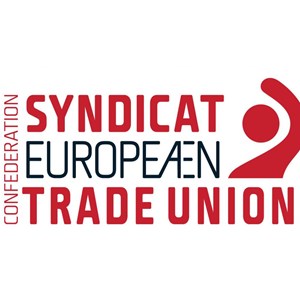The new European Technical Committee CEN/TC 473 ‘Circular Economy’ will provide an arena for discussions and actions forward in implementing new standards for increased circularity. “A true circular economy is not achieved in organizations or nations alone, but through collaborative action and trans-sectoral consensus building,” says Laura Linnala, project manager at the Swedish Institute for Standards, SIS.
The shift to a circular economy requires standards that can guide Europe to using resources as efficiently as possible. The Swedish Institute for Standards, SIS, was recently tasked by CEN members to lead the new committee CEN/TC 473 Circular Economy.
“A true circular economy is not achieved in organizations or nations alone, but through collaborative action and trans-sectoral consensus building. We will gather European expertise to develop common guidelines that all countries can agree on. This has only been done at an international level before, and the ambition from the EU Commission now needs to be followed by European standards”, says Laura Linnala, project manager at the Swedish Institute for Standards, SIS.
Standards enable the circular economy by creating a common basis for how products and services should be designed and managed to use resources as efficiently as possible.
The chairman of the new committee is Raul Carlsson, senior researcher at the Research Institute of Sweden, RISE. His first task, together with the rest of the committee, is to identify which areas are most in need of new standards.
“The committee will produce standards that the European industry need and keep a close dialogue with the Commission, to ascertain that standards are in line with their Circular Economy Action Plan”, says Laura Linnala.
Circular procurement among the proposals
Circular procurement, circular business models and digital product passports are among the relevant areas to be standardized.
“We obviously need to start somewhere and will eventually work with a whole range of different areas. Other countries are welcome to take a position on any of the proposed areas.
ISO has produced three global circular economy standards, ready to be published early next year. One standard for how the circular economy should be defined, one for the transition to circular business models and one for how the circular economy should be measured.
If the experts involved agree, we will look at the global standards to see if we should implement them as European standards as well. If we do, all countries must implement them as national standards and no country may have its own standard or any national law that conflicts in this area”, says Mrs Linnala.
When will Europe have its first circular economy standard in place?
“It is hard to predict at this stage. The fact remains that it usually takes about three years to develop a standard from idea to publication”.
If you are interested to join this technical committee, please contact the CEN National Standardization Body in your country. For more information, please contact Laura LINNALA (SIS) or Carolina MÜLLER (CEN and CENELEC).

Giovanni COLLOT
gcollot@cencenelec.eu



